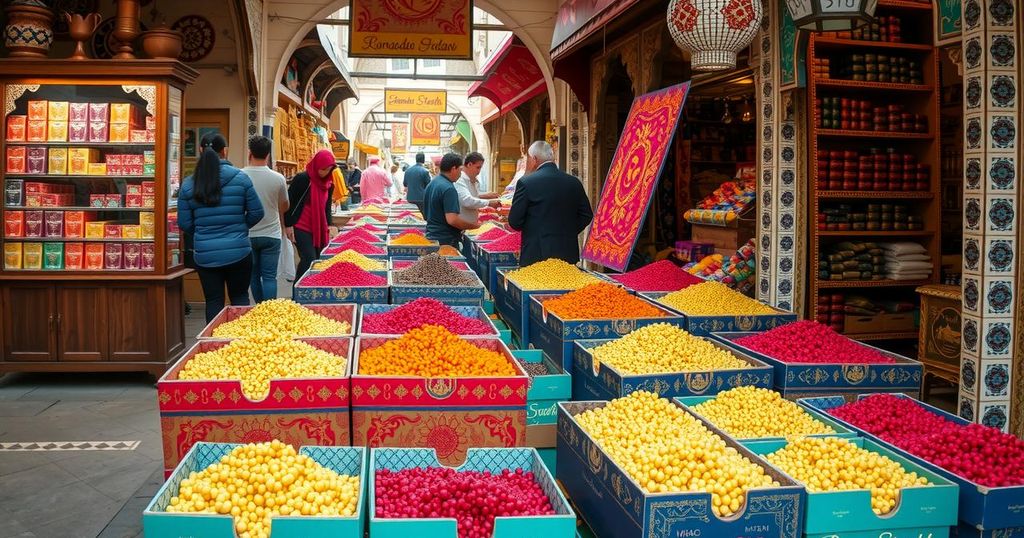Morocco is increasing date imports as Ramadan approaches, facing drought challenges affecting local production. Minister Bouari acknowledges insufficient rainfall this season, prompting reliance on imports, particularly from Egypt and Saudi Arabia. Recent agreements aim to improve agricultural resilience. Dates are crucial for breaking fast during Ramadan, set to commence on March 1 based on crescent moon sighting.
As Ramadan approaches, Morocco is seeking to increase its imports of dates to meet local demand. Reports indicate that the country is facing challenges, notably a significant drought affecting agriculture. Minister of Agriculture, Ahmed Bouari, has confirmed that this season’s rainfall is notably insufficient, impacting cereal production and the overall agricultural output.
A recent report from FreshPlaza highlights that most dates available in Moroccan markets, particularly in Casablanca, are imported due to decreased local production. The demand for dates is especially high during Ramadan, which is traditionally marked by their consumption. An importer stated, “This year, we’re seeing even fewer Moroccan dates because of the drought in the main growing areas.”
Morocco’s date imports are not limited to Tunisian varieties, as the nation also sources dates from Egypt, Saudi Arabia, among other countries. In October 2024, Morocco enhanced its commitment to the date palm sector by signing six new agreements, aimed at improving agricultural practices and supporting local farmers in the Drâa-Tafilalet region, where date production is concentrated.
According to official estimates, Morocco produced approximately 115,000 tons of dates in the 2023-2024 season. Dates play an important role in Ramadan, where they are typically consumed to break fast alongside milk or water. The holy month is expected to commence on March 1, pending confirmation from Morocco’s Islamic Affairs Ministry upon sighting the crescent moon, fostering a lively celebration across the nation.
In summary, Morocco is gearing up to import more dates as Ramadan approaches, due to adverse weather conditions impacting local production. Minister Bouari’s acknowledgment of drought highlights the agricultural challenges faced this season, leading to a reliance on imports from various countries to satisfy the growing consumer demand. Recent agreements aim to enhance local agricultural practices, ensuring a more resilient date production sector for the future.
Original Source: www.moroccoworldnews.com




